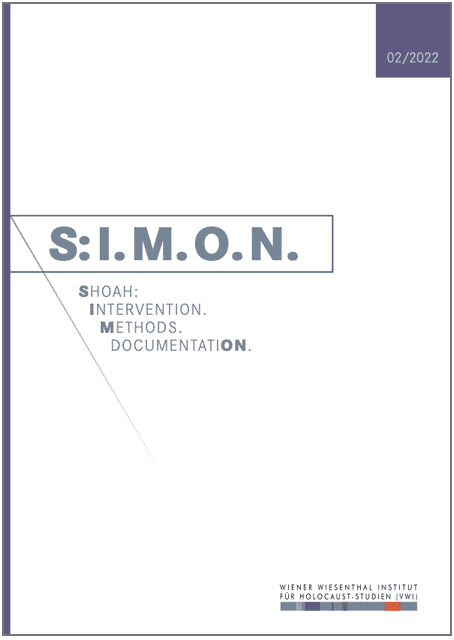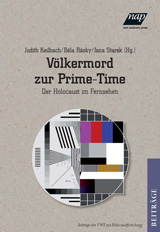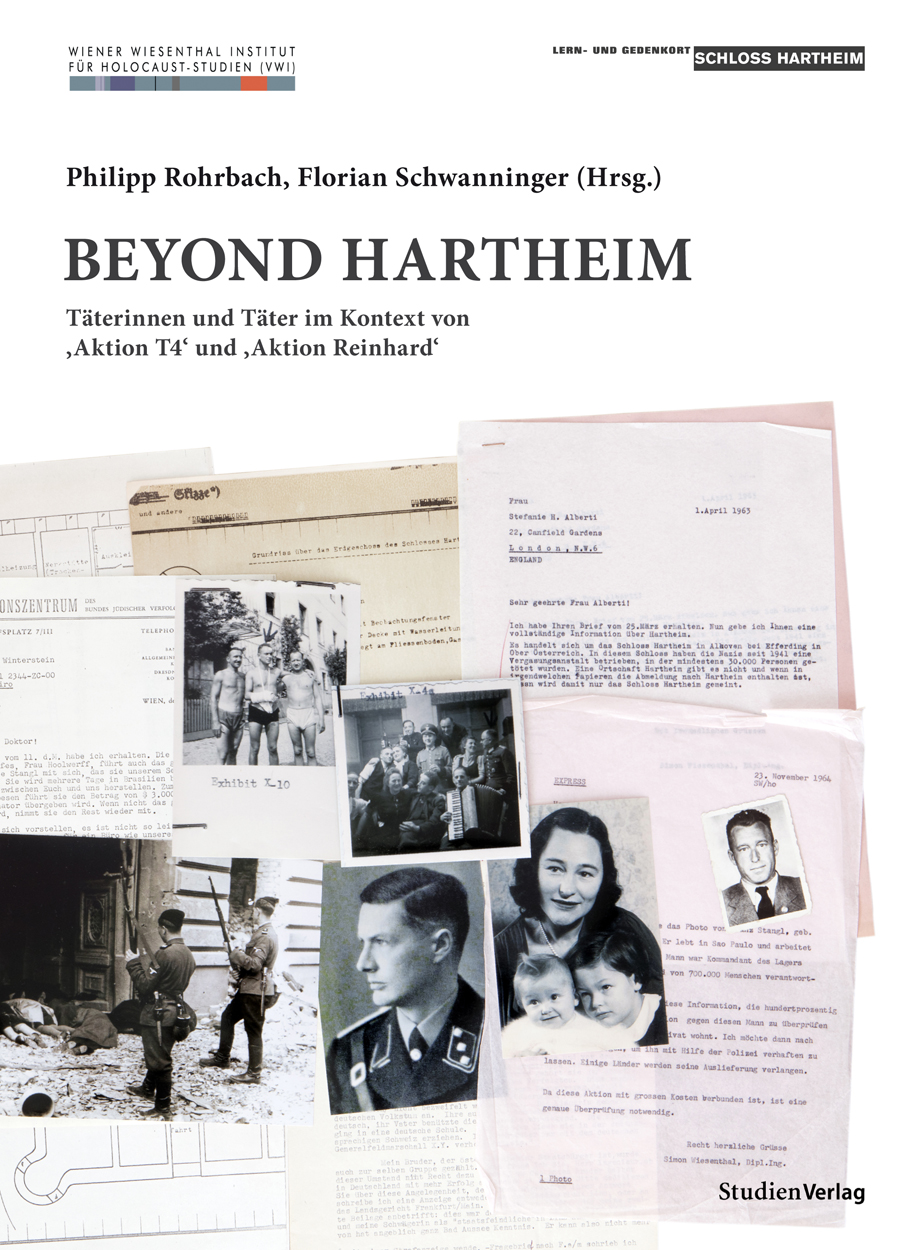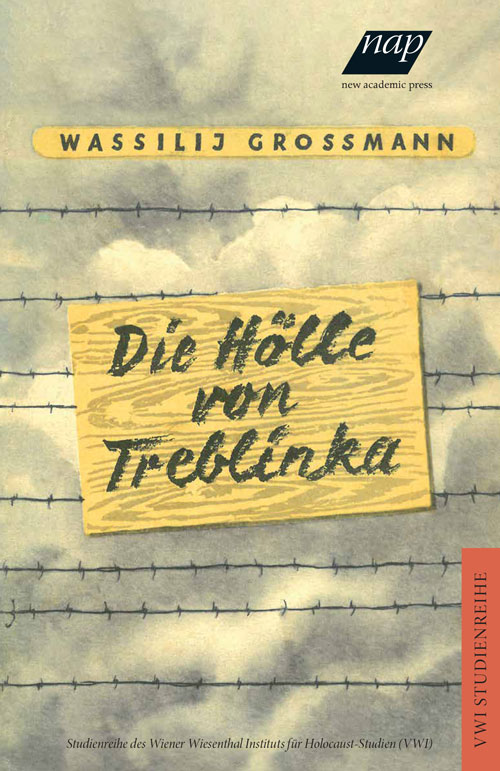News – Events – Calls
| 02. May 2024 18:30 Simon Wiesenthal LectureEdyta Gawron: Never Too Late to Remember, Never Too Late for Justice! Holocaust Research and Commemoration in Contemporary PolandIn 1994, Simon Wiesenthal received a doctorate honoris causa from the Jagiellonian University in Krakow for his lifelong quest for justice – half a century after he had been, for a short time, prisoner of the local Nazi Concentration Camp (KL) Plaszow. The 1990s were the decade when t...Weiterlesen... |
| 07. May 2024 00:00 - 04. June 2024 00:00 WorkshopDealing with Antisemitism in the Past and Present. Scientific Organisations and the State of Research in AustriaThis series of talks, presented by antisemitism experts from different organisations that research antisemitism using a variety of academic approaches, aims to provide a snapshot of historical evolutions, current events, prevalent perceptions and declared (and undeclared) attitudes. I...Weiterlesen... |
| 14. May 2024 08:45 - 16. May 2024 16:30 TagungQuantifying the Holocaust. Classifying, Counting, Modeling: What Contribution to Holocaust History? About the conference: https://quantiholocaust.sciencesconf.org/ Programme timed on the basis of 15-minute presentations + 15-minute discussions; short breaks and lunches Day 1 Tuesday, 14 May 2024Centre Malher (9 rue Malher 75004 Paris/amphi Dupuis) From 8.45 am: Welcome9.30 am...Weiterlesen... |
| 24. May 2024 18:00 InterventionLange Nacht der Forschung 20242024 öffnet das Wiener Wiesenthal Institut für Holocaust-Studien (VWI) in der Langen Nacht der Forschung wieder seine Tore und lädt Interessierte in seine Räumlichkeiten am Rabensteig 3 ein. Im Rahmen von Vorträgen, Podiumsdiskussionen und Präsentationen bieten VWI-Team und Gäste Einb...Weiterlesen... |
| 04. June 2024 13:00 VWI invites/goes to...Workshop: Social History of the Shoah. Everyday Life, Space and Time VWI invites the Department of Contemporary History, University of Vienna 13:00Hannah Riedler (VWI Junior Fellow)Between Deportation, Forced Labour and Germanisation. The Umwandererzentralstelle in Occupied Poland 1939–1941Commented by Kerstin von Lingen 13:40...Weiterlesen... |
| 13. June 2024 18:30 Simon Wiesenthal LectureJack Fairweather: The Trials of Fritz Bauer. How Life as a Gay Jewish Socialist under the Nazis Shaped His Quest for JusticeFritz Bauer’s daring mission to bring Adolf Eichmann and the perpetrators of Auschwitz to justice forced Germany and the world to pay attention to the crimes of the Holocaust. Bauer’s moral courage in speaking out in a society that had not yet come to terms with its past, which he him...Weiterlesen... |
Dani Gal
Artist in Residence (08/2019–09/2019)
Three Works for Piano
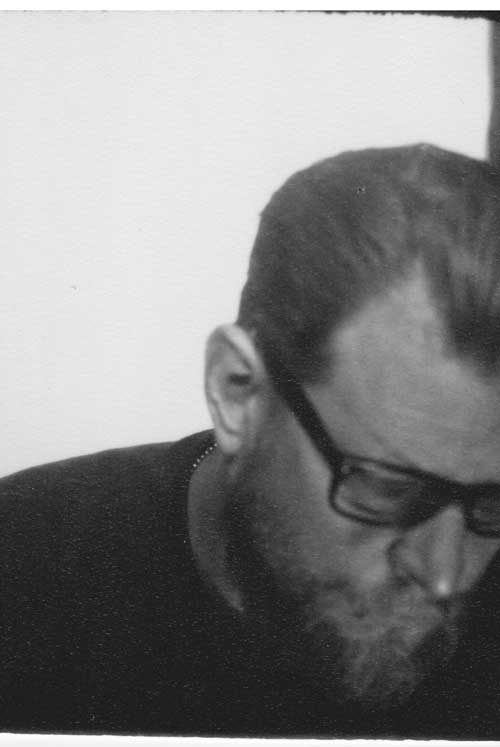 Visual artist, Dani Gal, investigates how personal and collective histories and memorisations are produced, selected and carried through time and space by means of intensive research and examination of historical image text and sound documents, which he subsequently juxtaposes alongside current political and cultural occurrences.
Visual artist, Dani Gal, investigates how personal and collective histories and memorisations are produced, selected and carried through time and space by means of intensive research and examination of historical image text and sound documents, which he subsequently juxtaposes alongside current political and cultural occurrences.
In his video and sound installations, the artist reconstructs and reconfigures pre-existing documentary materials through subtle re-appropriations to emphasise collective histories and personal stories, that have fallen prey to oblivion and await the attention of historians and other cultural commentators.
Gal attributes special attention to readapting predominantly historic sources of language and sound into performative environments: emphasising the circumstances of the source’s production, cultural relevance and thus creating new connections between historic materials and contemporary cultural contexts.
During the artist’s residence in Vienna – hosted by Blood Mountain Projects and the Vienna Wiesenthal Institute, funded by the Federal Chancellery of the Republic of Austria, and scheduled to take place between August and October 2019 – Gal will revisit events from the 20th century musical avantgarde to elaborate on his examination on the complexities of transgenerational trauma and its effects on the relationships between prepetrators and victims of nationalist oppression.
As the Vienna Wiesenthal Institute’s first Artist in Residence, several public events accompany his fellowship, which are presented in partnership with Blood Mountain Projects.
Dani Gal, born 1975 in Jerusalem, lives and works in Berlin. He studied at the Bezalel Academy for Art and Design in Jerusalem, the Staatliche Hochschule für Bildende Künste Städelschule in Frankfurt and the Cooper Union in New York. His films and works have been shown at the Centre Pompidou in Paris (2018), Documenta 14 (2017), Kunsthalle Wien (2015), Kunsthaus in Zurich (2015), Berlinale Forum Expanded (2014), Jewish Museum in New York (2014), Kunsthalle in St. Gallen Swizerland (2013), New Museum in New York (2012), 54th Venice Biennale (2011), and the Istanbul Biennale (2011).
Blood Mountain Projects
Blood Mountain Projects is an independent cross-disciplinary research and curatorial platform. Its mission is to explore the cultural past, present and potential of Central Europe. It was founded in Budapest by Jade Niklai and Tom Sloan in 2010 and operates with the support of an international board of trustees. In 2015 Blood Mountain relocated to Vienna and in 2018 became an Austrian registered Kulturverein.
The Nordbahnhof Project is Blood Mountain’s first programme dedicated to to the cultural heritage of contemporary Austria and its Holocaust past.
Projectpartner:
Funded by:








